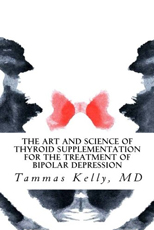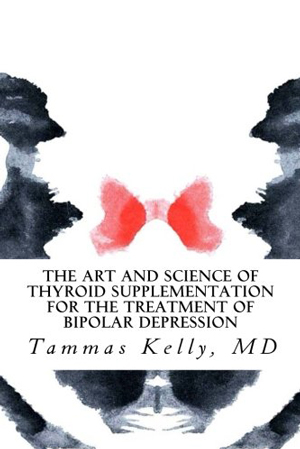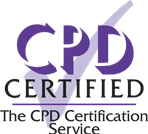What is Treatment-Resistant Depression (TRD)?
TRD is depression that doesn’t get better, even with treatment. From a medical perspective, if you have depression that does not improve with at least 2 trials of antidepressants, you have TRD. The first step in the management of TRD is to reconsider the diagnosis even before giving rTMS or any other treatment, because bipolar disorders are very often misdiagnosed as treatment-resistant depression.
Many people diagnosed with major depression actually have subthreshold bipolar disorders.
For example, a study found that the majority (52% or more) of people diagnosed with depression in the U.K. actually have undiagnosed subthreshold bipolar disorder, but are considered to have treatment-resistant depression. A further study in the US found that 40% of people diagnosed with major depressive disorder also had symptoms of subthreshold hypomania. Another study of 43,000 people found more than 7 out of 10 of those with “pure major depression” have subthreshold bipolar disorder. In another study of 5,635 people, 16% of those with a major depressive episode fulfilled the criteria for bipolar type I or II. In addition, about a third of those with major depressive disorder convert to bipolar disorder with time.
Learn about the different types of bipolar disorder.
Why is this relevant? Because treatments for depression can harm people with bipolar disorder.
Treatment for depression normally involves talking therapy and antidepressants. But for those with bipolar disorder misdiagnosed as TRD, the use of antidepressants can make their condition worse in the long run and increase mood cycling. Research has shown that the use of antidepressants, whether short-term or long-term, can worsen bipolar symptoms and be counterproductive, even harmful. With that in mind, we recommend that antidepressants should not be used for bipolar – even with mood stabilisers and antipsychotics. This is in keeping with current guidelines and follows on from the landmark STEP-BD study on bipolar treatment. CBT is not the answer either. Indeed, in the largest and longest study of CBT in bipolar disorders (which excluded rapid cyclers), CBT was found to be no more effective than treatment without it, and may actually make the condition worse.
In short, bipolar disorder is different to depression and requires different treatment. So if you have been diagnosed with depression or TRD, have tried multiple antidepressants but have not improved, or have gotten worse, it may be time to ask if you could have a bipolar spectrum disorder.
For an in-depth look at thyroid supplementation in bipolar depression, we would recommend The Art and Science of Thyroid Supplementation for the Treatment of Bipolar Depression By Dr Tammas Kelly.
Why Are So Many People Misdiagnosed?
To understand why so many people with bipolar disorder are misdiagnosed with treatment-resistant depression, it is first essential to know that there are three main types of bipolar disorder: type I, type II, and unspecified bipolar disorder (also known as Bipolar Disorder Not Otherwise Specified (BD-NOS) and subthreshold bipolar disorder).
In the United Kingdom, sadly, clinicians are not trained to look for signs of subthreshold bipolar disorder or treat it. This is largely due to the National Institute for Health and Care Excellence (NICE) guidelines. NICE publishes advice, information and guidelines for health, public health and social care professionals. Whilst NICE agrees that there is a concept known as ‘bipolar spectrum’, it only makes recommendations for assessment and treatment of bipolar disorder type I (7 days of mania) and II (4 days of hypomania), omitting subthreshold presentations, which make up 55-60% of all bipolar disorders. Not only this, but many bipolar type I and II patients never recover and suffer subthreshold bipolar symptoms (short severe periods of depression, mixed or hypomanic symptoms) without suffering 7 days of mania or 4 days of hypomania or 2 weeks of depression.
Subthreshold bipolar patients, who can be equally disabled by the condition, are usually diagnosed with TRD and are treated with Cognitive Behavioural Therapy (CBT) and antidepressants. However, antidepressants have been found to make the condition worse.
Surveys and studies have shown that:
- In the UK, bipolar disorder diagnosis takes an average of 13 years, and misdiagnosis occurs in up to 85% of cases.
- The standard across the world including the USA, Europe, Asia is also poor, with an average of 5.8 years’ delay in diagnosis.
- Such a delay has severe and potentially irreversible consequences
Treatments For Bipolar Disorder
A World Health Organisation (WHO) study found that over a lifetime, the burden of disability in bipolar spectrum disorder is greater than all forms of cancer, epilepsy, and all known neurological diseases including Alzheimers’s disease. Research has shown bipolar brings with it a high depression burden, an early death by 10 years from heart disease in almost 4/10, and a suicide rate of 18%.
Effective treatment is essential to improve the quality of life of sufferers across the world.
Existing treatment for bipolar disorder is often ineffective, with a plethora of side-effects and a high disability burden – which WHO found to be at 7.4 out of 10 on the Sheehan Disability Scale. We believe that people with bipolar deserve better. Here at The London Psychiatry Centre, 33% of our patients treated with our programme have a disability score of 0, and the average disability rating on the Sheehan Disability Scale is 1.29 out of 10 in our patients.
How? The Zamar Protocol ® (Precision guided high-dose thyroid hormones and rTMS protocol) treatment programme combines precision medicine; mitochondrial treatment; High Dose Levothyroxine and; non-invasive treatment rTMS (Repetitive Transcranial Magnetic Stimulation).
Read our recently published articles on our patented treatment here: https://www.mdpi.com/1861888 and https://www.mdpi.com/1832476. Learn more about the supporting evidence for our treatment programme, as well as the differences between traditional bipolar treatment and what we offer at The London Psychiatry Centre.
If you have any questions or would like to book in for our treatment programme, please call us on 020 7580 4224 and we’ll be happy to help.





